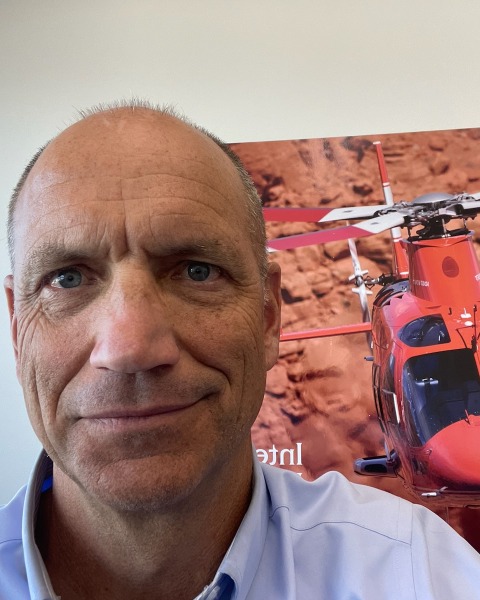Air Medical Crew Safety
Bad Weather! Can You Help Me Fly the Aircraft?
Monday, October 23, 2023
10:30 - 11:30 East Coast USA Time
Location: Room A110

Jerry Bastian, Pilot 38 years
Chief Pilot Rotor Wing
Intermountain Life Flight
Salt Lake City, Utah, United States
Main Presenter(s)
Disclosure(s):
Jerry Bastian, Pilot 38 years: No financial relationships to disclose
Non-flying crew members play a crucial role in supporting pilots, particularly in challenging weather conditions. Human error remains a significant factor in aviation accidents, with CFIT (Controlled Flight into Terrain) accounting for a substantial number of fatal incidents, especially among single-piloted helicopters. Unfortunately, air ambulance operators have witnessed a concerning rise in accidents in recent years.
Many of these accidents occur when pilots face low ceilings and limited visibility. Helicopter pilots, in particular, tend to avoid flying in the clouds and may even resort to flying the aircraft dangerously close to the ground. They rely on visual references and convince themselves that they can maintain control. However, this approach diminishes their situational awareness, compromises their ability to fly instruments effectively, overwhelms them with workload, and ultimately jeopardizes the safety of the flight.
In such critical situations, non-flying crew members, despite not being at the controls, can make a significant positive impact by assisting the pilot and preventing accidents. This presentation will explore specific questions that crew members can ask the pilot to help avert these incidents. Effective communication plays a pivotal role in eliminating potential issues and is a key aspect of successful Crew Resource Management (CRM).
Many of these accidents occur when pilots face low ceilings and limited visibility. Helicopter pilots, in particular, tend to avoid flying in the clouds and may even resort to flying the aircraft dangerously close to the ground. They rely on visual references and convince themselves that they can maintain control. However, this approach diminishes their situational awareness, compromises their ability to fly instruments effectively, overwhelms them with workload, and ultimately jeopardizes the safety of the flight.
In such critical situations, non-flying crew members, despite not being at the controls, can make a significant positive impact by assisting the pilot and preventing accidents. This presentation will explore specific questions that crew members can ask the pilot to help avert these incidents. Effective communication plays a pivotal role in eliminating potential issues and is a key aspect of successful Crew Resource Management (CRM).
Learning Objectives:
- Articulate the role of non-flying crew members in supporting pilots during adverse weather conditions.
- Identify a range of specific and effective communication strategies and identify targeted questions that non-flying crew members can utilize to effectively support pilots, enhance situational awareness, and proactively mitigate risks in challenging weather scenarios.
- Identify specific strategies to help pilots manage workload during bad weather, enabling non-flying crew members to provide timely support for safe aircraft operation.

.jpg)
.jpg)
.jpg)
.jpg)
.png)
.jpg)
.jpg)
.jpg)
.png)
.jpg)
.jpg)
.jpg)
.jpg)
.jpg)
.jpg)
.jpg)
.jpg)
.jpg)
.jpg)
.jpg)
.jpg)
.jpg)